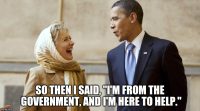During his weekend visit, Ian brought up a copy of Atlas Shrugged Part I. In telling me about it, he said something like: “I got the impression the people involved were very concerned about making it faithful to the novel.”
Me: “As opposed to making it entertaining?”
Ian: “I didn’t say that.”
Say what you will about Ayn Rand. She wasn’t an unusually good novelist, and from what is known about her life she doesn’t come across as an unusually good person. But give the woman her due: She had Passion.
Which is more than you can say about this movie. It’s the novel – frequently word for word it’s the novel – but with every ounce of passion or even interest sucked out as though with the biggest Hoover in the universe. Maybe that’s where the producers spent the money that would have better gone into sets, actors, and a decent screenwriter.
I know they’re not unfamiliar with the idea of passion. The actor who played Ellis Wyatt certainly understood it, and his scenes positively drip with it. In this movie, that makes him unique – and also by far the best character. Every other character, including the essential Dagny, is Flat As Cardboard.
Not that it’s necessarily the actors’ fault. One example out of many: In the novel there’s a very long scene in which Dagny and Rearden explore the remains of the Twentieth Century Motor Company, which has collapsed under mysterious and sinister circumstances, and its environment. The factory is in ruins, and the town that once grew up around it is horribly reduced to inbred, half-human scavengers. In the movie, the town is unmentioned and the factory is represented by what appears to be an unusually clean parking garage that doesn’t look a thing like an abandoned factory. One set alone is dressed, with all the clues leading to Galt’s magic motor literally taped to the walls so we won’t miss them. Horrifying? Hell, it isn’t even very depressing. But we know it’s supposed to be, because Dagny solemnly intones, “This is depressing.” That’s not bad acting, that’s bad writing.
The film abounds with such miscues. The central mystery is supposed to be about the missing movers’n’shakers. John Galt, at this point, is supposed to be just a strange aphorism: “Who is John Galt?” Not so mysterious when both are explained in virtually the first scene of the film. In the novel, the villains are portrayed as stupid and mostly unintentionally evil. They loot and destroy industry after industry not through active malice, but through their decreasingly justified faith that the people running those industries will muddle bravely on despite the looting. The movie writer(s?) apparently decided that wasn’t clear enough, because we’re given gratuitous scenes in which villains with no clear motivation for doing so actually set out to destroy key industrialists like Ellis Wyatt, whom they desperately need. Why? I dunno. Who is John Galt?
(ETA: This isn’t a minor quibble. That’s the whole point of the strike! The baddies in Atlas Shrugged weren’t (consciously) trying to destroy industrialists. They were trying to ride them, trusting in their limitless strength to sustain the parasites.)
Then there’s the once-essential scene introducing Hugh Ackston, and I don’t even have the heart to get into that.
The funny thing I experienced while watching this movie was that I gradually began to realize how much I love the novel. I’ve spent my entire adult life panning it, and it certainly has some pannable bits. But Rand intended that the novel should do something very specific, and for all its faults it does that. And it does it with passion and verve. Watching this movie is like reading an inept book review of Atlas Shrugged, written by someone who loved its ideas but never really grasped them.
















































It keeps coming up on my Netflix ‘watch instantly’ recommendations, and I keep *not* watching it, afraid of the stain it will leave on my otherwise (net) favorable view of the novel.
Funny, though, Netflix categorizes it as science fiction or fantasy.
Well, it is set in the future.
Yeah, the Hugh Akston thing, the Hugh Akston thing … they just threw away a great, and very important scene. I know movies can’t cover everything that’s in their books, especially a biiiiiiig book like that one. But they really missed on that and a whole lot of others.
A movie that can make you like AS The Book by comparison, that’s pretty bad.
Sorry you didn’t like it. I found it, if not life-changing, at least competent as an adaptation. I thought the acting was better than that pill Gary Cooper in The Fountainhead.
Flat, two-dimensional characters? Black and white good vs. evil? No greys anywhere?
Reminds me of the novel I couldn’t finish.
Sorry. I like Rand as an essayist, but I could NOT read Atlas Shrugged. The 70-page soliloquy by Galt was where I dropped it.